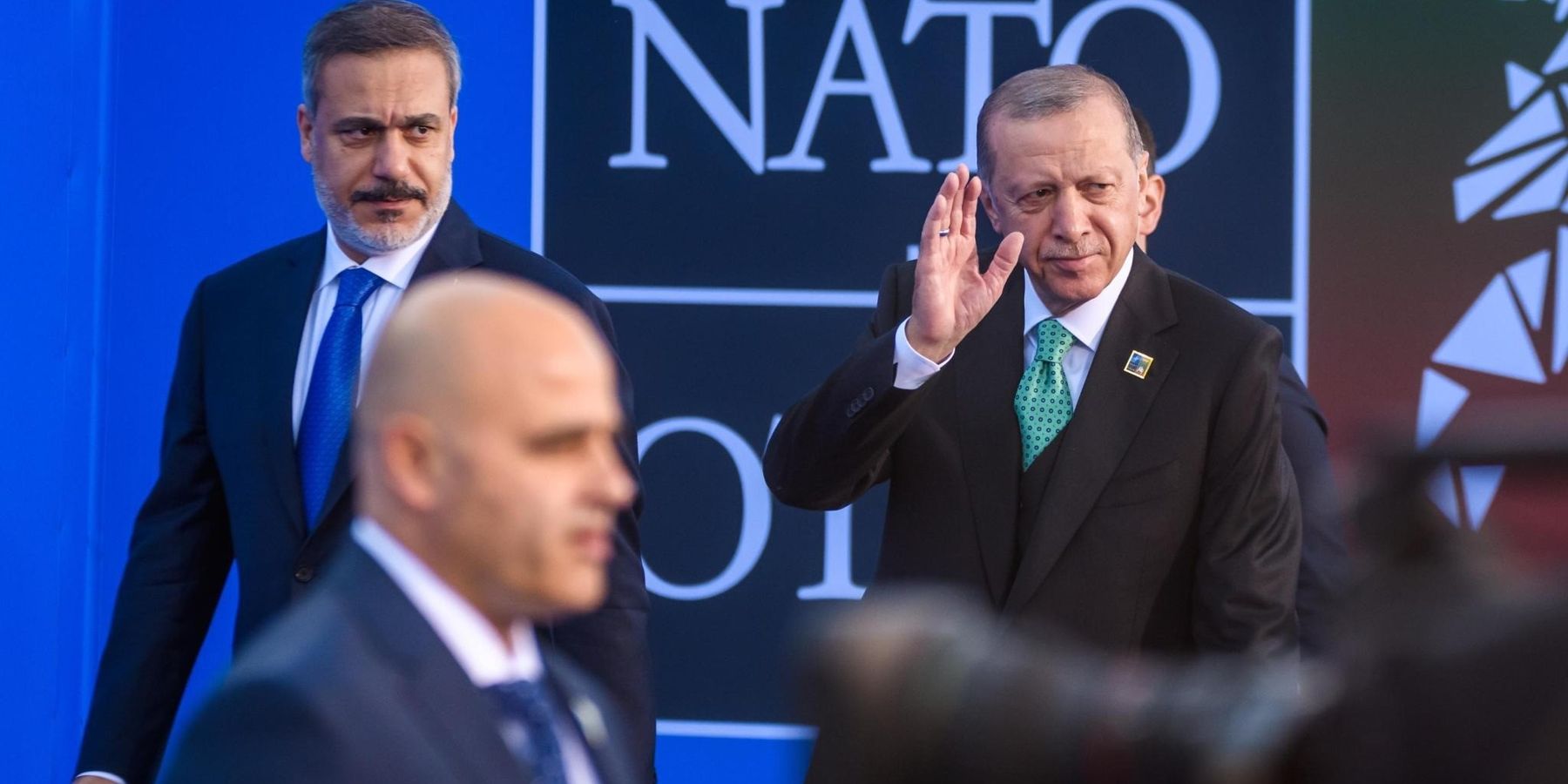So that’s it then. Earlier this week, Turkey’s parliament voted to endorse Sweden’s bid to join NATO. Sweden has been trying to accede to the alliance since 2022, and while all NATO members must approve before it can join, Hungary now remains the lone holdout. (Finland successfully joined NATO back in April 2023 and the Hungarian impasse over Sweden is likely to break soon too.)
Yet it’s the vote by Turkey that especially stands out. It shows just how bipolar NATO has become—and why so many Americans in the national-interest-first age of Donald Trump have grown skeptical of the alliance.
NATO was founded in 1949 as a mutual security compact between the United States, Canada, and ten Western European countries. It came into being as a means of both pursuing a post-war consensus in Europe and countering Soviet aggression. Yet over time NATO has encroached eastward, gobbling up new nations and inching closer to the Russian border. This has led Russia to fear that NATO expansionism could threaten its own diplomatic relations and sovereignty within its global neighborhood.
Meanwhile, another trend has taken hold: NATO has become “the U.S. and all the rest.” The NATO charter requires member states to spend at least 2% of their GDPs on defense yet only 10 out of 31 of them do: the United States, the United Kingdom, Greece, Hungary, Latvia, Lithuania, Poland, Romania, Slovakia, and Estonia. And while military buildups in Eastern Europe in response to Russian aggression are laudable, the U.S. is still far in the lead, having spent at least 3% of its GDP on defense for 21 years. Wealthy Canada spends just 1.2% of its GDP on defense.
To be in NATO is thus to be under the American security umbrella. And for many members, that’s an opportunity to free-ride, to allow their own defenses to deteriorate because the most powerful military in the history of the world has their back.
Yet if most NATO members are thinking in cold fiscal terms, the U.S. can be far more idealistic in its approach. Countries are increasingly being inducted into NATO based less on what they can contribute than what values they espouse. So it was that in 2017, Montenegro joined NATO. Montenegro is a tiny Balkan nation with fewer people than Vermont and an armed forces of just over 2,300 active-duty members. But it was also another brick in the “pro-democracy” bloc and an opportunity to poke that dictator Vladimir Putin in the eyes. So in it went.
This is why Turkey agreeing to vote Sweden into NATO is so beautifully representative. As late as 2018, Swedish defense spending hovered around 1%, and while recent investments are projected to push it above the 2% threshold, we’re hardly talking about a military powerhouse here. But having Sweden in NATO is an idealistic victory and a show of unity against Russia—it’s the last Scandinavian nation not on the inside.
Turkey, meanwhile, is an altogether different story. Its government is authoritarian in all but name, has flirted with Islamism, and maintains strong relations with Russia. Turkey has also been a part of the alliance since 1951 when it emerged as an opponent of Soviet power. America today maintains an important airbase there with easy access to theaters in the Middle East. So Turkey stays in, largely for strategic reasons.
But then that just shows what a muddle NATO has become. Because which is it? Is it an alliance of like-minded democracies that seeks to defend liberal values? Or is it a cold-eyed bloc on the Risk board meant to counter threats from the East? The latter is truer to NATO’s historical purpose while the former is more representative of our post-Soviet world. It’s an identity crisis that doesn’t seem easily untangled.
Turkey held out for months on allowing Sweden to join, complaining that the Swedes were going too easy on the Kurdistan Workers’ Party (PKK), which Ankara (as well as the U.S. and EU) consider a terrorist group. Sweden helped break this impasse by cracking down on support for Kurdish terrorists back home. Yet there may be another reason why Turkey suddenly warmed to Sweden. The day after its parliament vote, President Joe Biden sent a letter to Congress demanding they approve an additional $20 billion in F-16 fighter jets for the Turkish military.
Maybe that’s just the price we pay for the privilege of paying for Sweden. Idealism? Realism? Either way one thing remains clear: America will always foot the bill.
- Playing games in NATO, Turkey eyes its role in a new world order ›
- What if Turkey blocks Finland and Sweden NATO bids? ›
- Beyond the Noise: NATO Debates, Past and Present | Responsible Statecraft ›
















